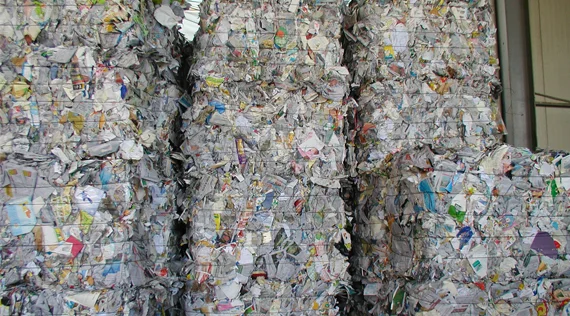
SEATTLE (Scrap Monster): When you walk along the beaches of Lake Erie, you're going to see litter and a new report found that a lot of that trash is going to be plastic.
On average, 86% of the litter collected in a given Adopt-a-Beach season is composed either partially or fully of plastic, according to a report released by the Alliance for the Great Lakes. The report is based on 20 years of data collected from more than 14,000 Adopt-a-Beach cleanups on all five Great Lakes, including Lake Erie at Presque Isle State Park.
“Plastic pollution in the Great Lakes is a threat to both human health and the environment,” Olivia Reda, author of the report and the volunteer engagement manager at the Alliance for the Great Lakes, said in a statement. “The volume of plastic found on our shorelines demonstrates the urgent need to pass federal, state and local laws that reduce plastic pollution getting into the lakes. While our dedicated volunteers are cleaning up literally tons of litter each year, more of this plastic litter enters our waters, where it breaks down into tiny particles that are found in our drinking water.”
The source of much of the litter is single-use items, such as plastic bags, straws, food wrappers, takeout containers and plastic utensils, according to the report.
"This discarded plastic never really goes away. It just breaks down into smaller and smaller pieces," the report stated.
John Laskos, an environmental education specialist at Presque Isle, sees more and more plastic on the park's beaches. Most of it is 3 inches or smaller, he said, as the bottles, bags, children's toys and more have broken down.
In addition to landing on beaches, pieces end up in the Great Lakes, which are a source of drinking water for 40 million people and home to many aquatic species. These can mistake the plastic pieces for food, causing nutrition problems. Fish can consume the pieces, which could contain chemicals or toxins, and then be eaten by people. Tiny pieces of plastic known as microplastics have been found in drinking water, beer and human blood and breast milk, according to the report.
"It even winds up inside us because we consume fish (that ate the plastic)," Laskos said.
Beside the health concerns are the aesthetic ones.
"Nobody wants to come to a dirty looking beach," Laskos said.
The information compiled by the Alliance for the Great Lakes found that from 2003 through 2013, the top litter items collected at Adopt-a-Beach cleanups were cigarette butts followed by food wrappers; caps and lids; straws and stirrers; cigar tips; cups, plates, forks and knives; plastic beverage bottles; plastic bags; glass beverage bottles; and beverage cans.
Courtesy: www.goerie.com



| Copper Scrap View All | |
| Alternator | 0.38 (0) |
| #1 Copper Bare Bright | 4.46 (0.03) |
| Aluminum Scrap View All | |
| 356 Aluminum Wheels (Clean) | 0.85 (0) |
| 6061 Extrusions | 0.75 (0) |
| Steel Scrap View All | |
| #1 Bundle | 385.00 (0) |
| #1 Busheling | 405.00 (0) |
| Electronics Scrap View All | |